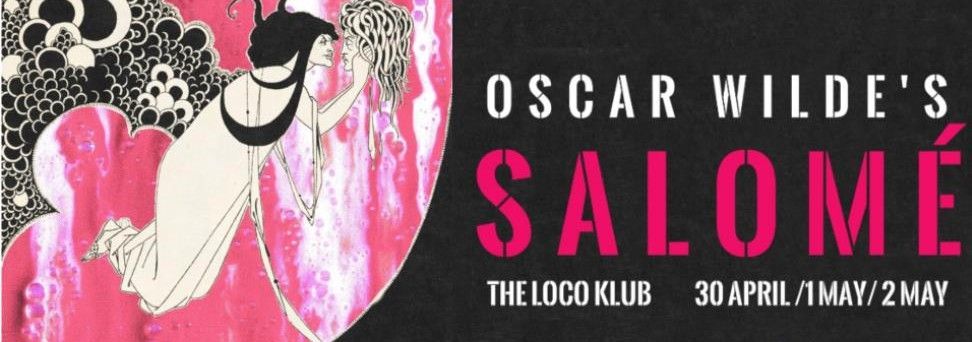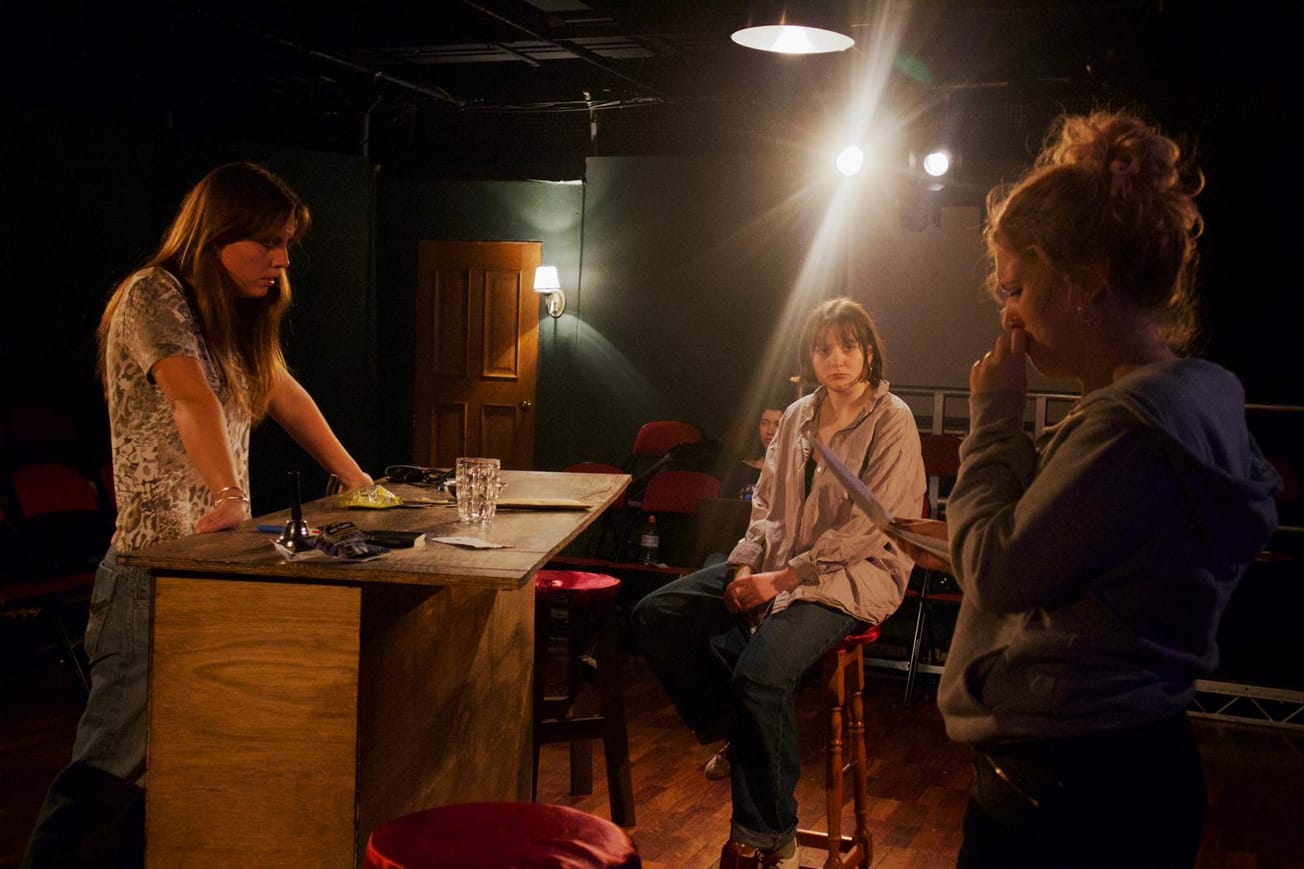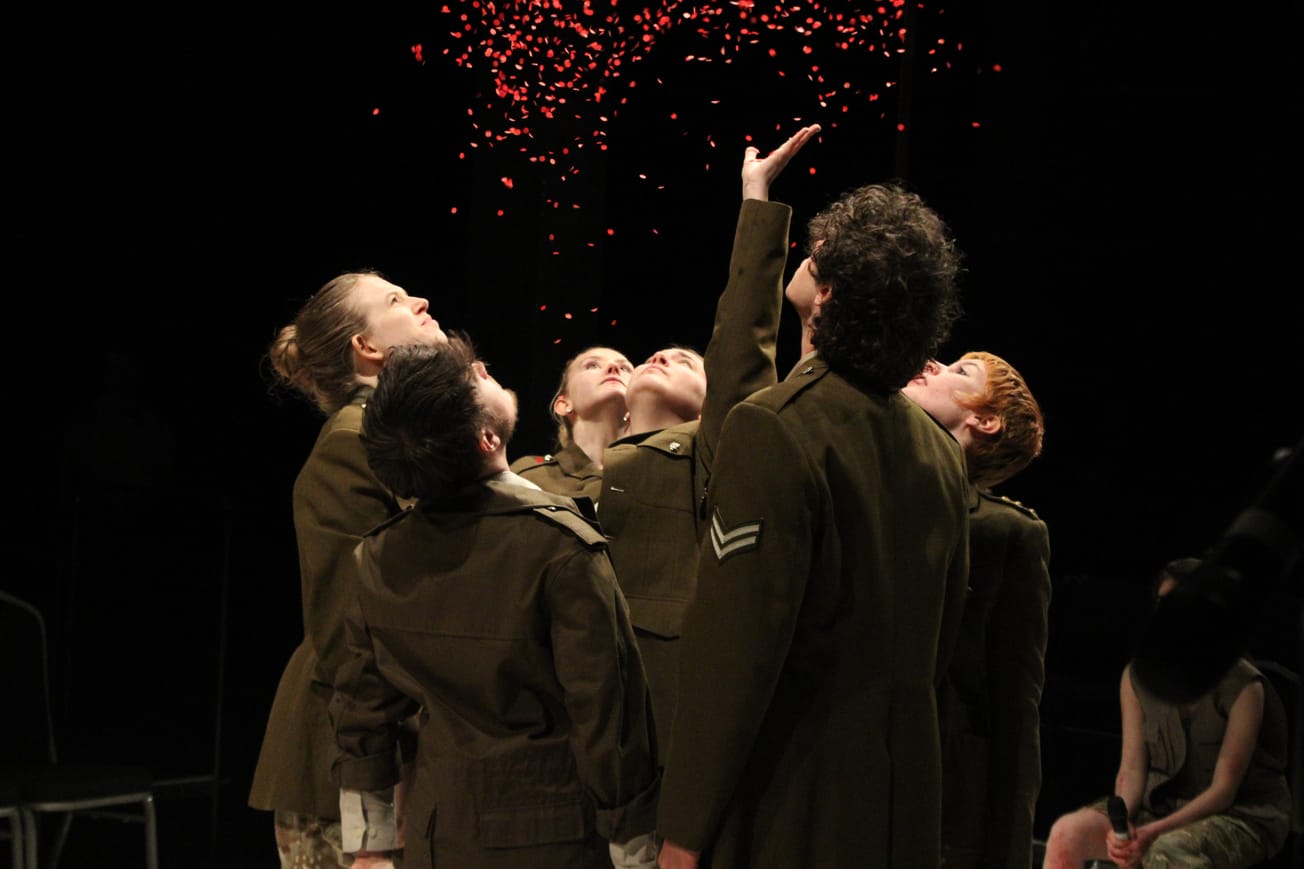Josh Peleg gives his take on DramSoc's production of Oscar Wilde's tragedy, Salomé.
If the extreme men’s rights movement were looking for a new figurehead, Herod in Dramsoc’s production of Salomé would be a perfect fit. Equally, if modern feminism were looking for a fresh heroine to take the reins, they should look no further than Salomé herself. The two leads of this play - a tense, high-stakes depiction of lust and violence - find their relevance in the modern day with a fresh performance that makes you question how far you are willing to go to defend your individuality.
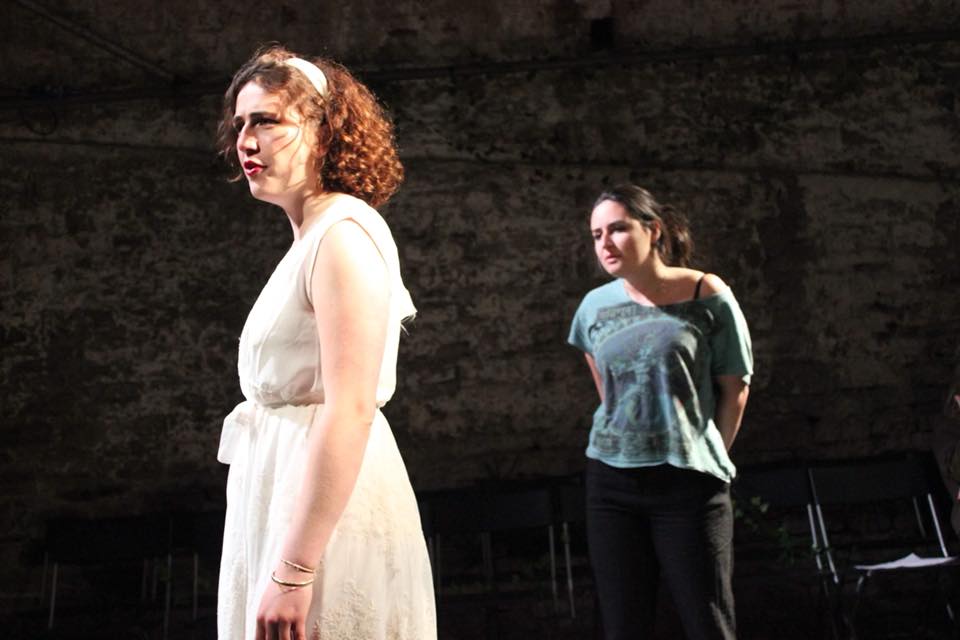 Facebook / DramSoc
Facebook / DramSoc
Herod’s arguments for male polyamory are built on a weak foundation of male superiority and power-lending ascendancy over his inferiors. In today’s day and age they fall laughingly short of Salomé’s indignant efforts to secure female independence and her freedom to choose her own lover. The word ‘love’ is sparsely used, if ever, in this lust-driven locomotive of a play that charges through the degradation of Salomé’s disposition, disposing of bodies, heads and clothes along the way.
Jokanaan ... makes a powerful entrance ... set up by off-stage voiceovers that characterise and introduce him before he sets foot on the stage.
The play comes into its own when we see these two titular heads go against each other in a foray of cheap shots and haymakers. Wilde’s language is mastered by Andrew Simpson (playing Herod) who injects manic laughs, alongside furious looks of introspection, into his depiction of a king driven to madness.
When pitted against Salomé, her calm disposition overrides his abusive and violent physicality, before we see her descend into demanding acts of violence. Her downfall, as she demands the head of her lover Jokanaan, so she can finally kiss his lips, gives great pleasure to the audience as we see an angelic heroine brought to the base level of morality that the play operates at.
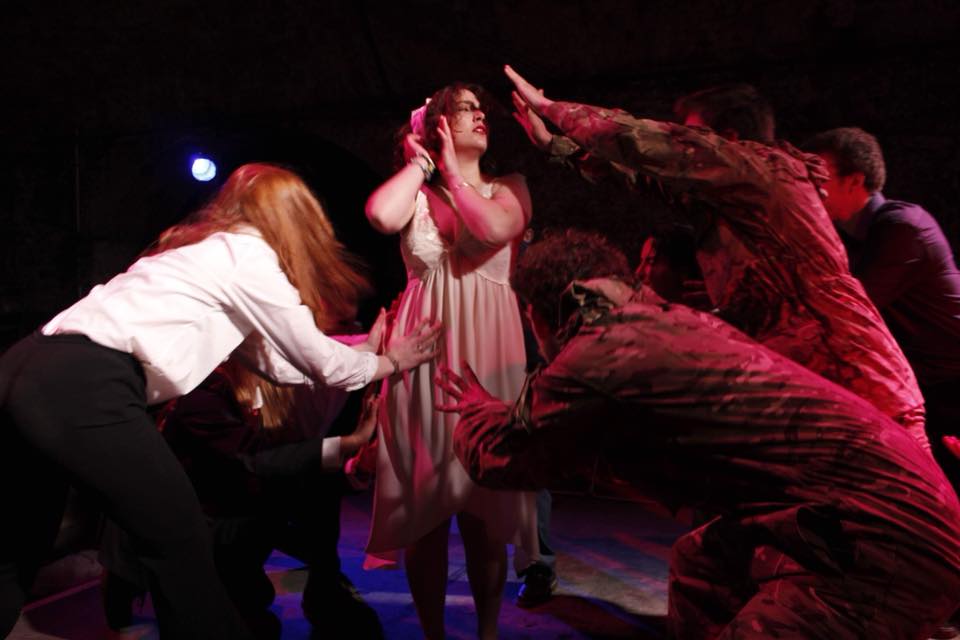 Facebook / DramSoc
Facebook / DramSoc
Wilde’s cynicism of religion is conveyed excellently, and Simpson does well to highlight lines such as, ‘I am sure it is a crime against an unknown god’. He seeks to justify many of his actions using religious superstition as a flimsy shield to protect himself from the judgement of others. The representative of religion in the piece is the prophet Jokanaan (played by Joseph Palmer), whose powerful entrance is set up by repeated off-stage voiceovers that introduce him before he sets foot on the stage.
Mimi Paltrdige (playing Salomé’s mother) attacks the role with a distasteful and watchful eye
His overpowering hatred of women is immediately apparent, adding an interesting dynamic to the play's viewpoints on sexuality. Somewhere between the lines of asexual and disinterestedly heterosexual, his habit of biting his fingernails and scratching at his body makes for a gripping entrance, yet loses their attraction as the play wore on. He conveys a hatred for his body, which seems like an inebriating vessel for his malignant will, but falls short of developing his character further than this as other characters take off throughout the play.
Palridge's portrayal of the division between [mother] and daughter is clear and becomes an effective weapon for Herod to use

Facebook / DramSoc
The relationship between women is strained, a quality of Wilde’s writing and the period in which it was written. Mimi Paltrdige (playing Salomé’s mother) attacks the role with a distasteful and watchful eye, making crass judgements but noticeably holding them to herself for fear of her husbands rebuttal. The role doesn't allow for much emotional range, yet Palridge's portrayal of the division between her and daughter is clear and becomes an effective weapon for Herod to use. She drifts out of focus towards the end, paving the way for Herod and Salomé’s final showdown. The play closes with the disturbing image of Salomé cradling Jokanaan’s worryingly lifelike decapitated head- a climax that encapsulates the play's lust, passion and violence.
★★★
How did you feel about the play? Let us know in the comments below or on social media

